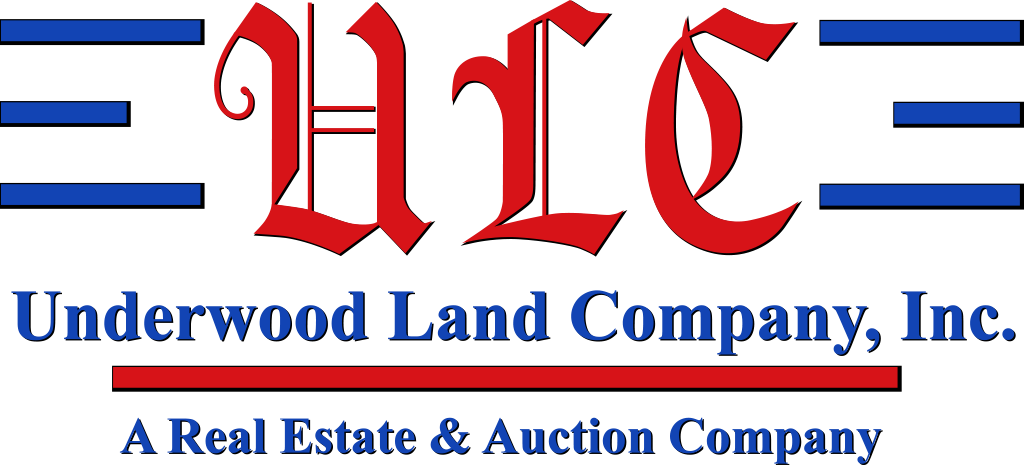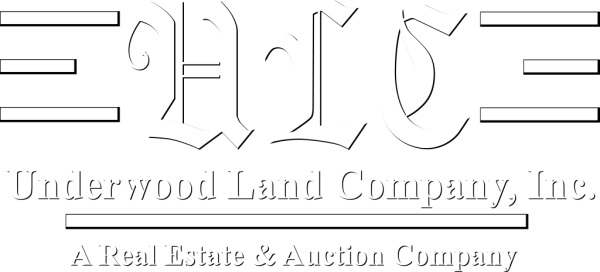Navigating Farm Auctions: Strategies for Buyers and Sellers

Have you ever wondered how to snag a great deal or sell for top dollar at a farm auction?
Navigating farm auctions is like playing a thrilling and challenging strategic game.
Whether you're a seasoned player or new to the field, knowing the ropes can significantly enhance your experience and success.
It's all about finding the best tools at the lowest price for buyers. This means doing your homework and setting a clear bidding plan.
Remember, knowing what you need and sticking to your budget are keys to avoiding impulse buys in the heat of the moment.
Conversely, sellers should aim to present their equipment in tip-top shape to fetch the highest bids. It's about making a great impression and setting realistic prices.
In the world of farm auctions, preparation is your best ally. By understanding the process and staying focused, buyers and sellers can leave the auction field as champions, armed with valuable finds or profitable sales.
Key Takeaways
- Auctions require strategic planning for buying or selling farm equipment.
- Thorough research and strategy are essential for buyers to get the best deals.
- Sellers must present items effectively to achieve the highest sale prices.
Understanding the Auction Process

Farm auctions offer unique opportunities for buyers and sellers by providing a structured and competitive way to transfer ownership of agricultural assets.
Farm auctions are events where agricultural equipment, land, and other assets are sold to the highest bidder.
These auctions can be live or online and follow well-defined procedures.
The auction starts with pre-auction marketing and item descriptions, allowing potential buyers to do their research beforehand.
At the event, an auctioneer will guide the proceedings, starting with an opening bid and increasing in increments until a final bid is reached.
In online auctions, buyers place bids within a given time frame, and the highest bid at the end wins.
Farm auctions often use the English auction format, where bids are made publicly. Sellers report a 30% faster sale process through auctions than traditional methods.
Understanding each auction’s rules and procedures is crucial for strategy development.
Benefits of Farm Auctions
Farm auctions provide several benefits:
1. Efficiency: Auctions can quickly settle sales within a short period. This is beneficial for sellers who need rapid asset turnover.
2. Transparency: Bidding is typically open and public, ensuring a fair competitive process. All participants can see the bidding progression, allowing for more transparent pricing.
3. Market Value: Items generally achieve market value as multiple bidders compete, enabling sellers to receive optimal prices while buyers secure deals at fair prices.
4. Diverse Offerings: Auctions often include many items, from tractors and farming equipment to large land parcels, offering something for every potential buyer.
Engaging in farm auctions can help sellers maximize their returns and offer buyers opportunities to acquire essential farming assets at competitive prices.
Familiarity with the auction process can significantly enhance auction success.
Strategies for Buyers

Navigating farm auctions requires careful planning and innovative strategies. To succeed, buyers must conduct detailed research, prepare financially, and adopt effective bidding tactics.
1. Research and Due Diligence
Thorough research is vital before attending an auction. Buyers should examine the farm's history they are interested in, including past ownership and any financial or legal issues.
It's also essential to understand the market trends for farmland prices in the area.
Inspecting the property in person or via online catalogs can provide insights into the condition of the equipment and land.
70% of successful auction buyers conduct extensive research on comparable properties.
This helps determine the farm's actual value and potential. Checking hidden issues like soil quality, water access, and existing structures is critical for a well-informed decision.
2. Financial Preparation
Financial planning is key to success. Buyers should set a maximum bid limit based on their budget and stick to it.
It's wise to secure pre-approval for a loan to ensure adequate funding and show the seller they are serious.
65% of auction buyers secure pre-approval for financing before participating.
Understanding additional costs such as taxes, fees, and potential repairs is essential. These costs can add up quickly, impacting the overall investment.
Buyers should have a clear financial strategy and plan for these contingencies, ensuring they stay within their budget.
3. Bidding Tactics
On auction day, buyers should employ smart bidding strategies. One effective tactic is to bid early to set the pace and gauge other bidders' interests.
However, it's also wise to bid late to avoid early bidding wars and save money.
Remaining calm and patient is crucial. Sometimes, the item of interest might not come up until later in the auction.
Buyers should be prepared for long waits and avoid getting caught up in the excitement, which can lead them to overbid. Communicating with the auctioneer can also provide advantages.
Asking questions and clarifying details assist in making well-informed bids.
Plus, it shows the auctioneer that the buyer is serious and knowledgeable, which can be beneficial in an auction's fast-paced environment.
Strategies for Sellers

Selling farmland at auction requires careful planning and execution.
Sellers must focus on presenting the property attractively, marketing it effectively, and setting realistic expectations for the auction process.
❖ Property Presentation
The presentation of the property is crucial to attracting potential buyers.
Sellers should maintain the land, ensure it is clean, and remove debris or obstacles.
Clear boundaries and easy access points should be marked to help buyers evaluate the property efficiently.
High-quality photos and videos showcasing different aspects, such as soil quality, accessibility, and existing infrastructure, can make a significant difference.
Holding open days where interested parties can visit and inspect the land can also enhance interest.
Detailed information about the property, including water sources, soil types, and any improvements made, will help buyers make informed decisions.
❖ Marketing and Promotion
Effective marketing and promotion are vital to ensure a successful farm auction.
Utilizing various channels such as online listings, social media, and traditional media can broaden the reach.
Engaging with farm auction marketing strategies like creating attractive brochures, placing advertisements in agricultural magazines, and listing the auction on specialized farm auction websites can draw more attention.
Collaborating with a professional auctioneer or real estate agent experienced in farm sales can provide valuable insights into targeting the right audience.
They often have networks and databases to leverage for more efficient promotion. Highlighting the property's unique features and potential benefits to buyers will also spark interest.
❖ Setting Realistic Expectations
Setting realistic expectations is important for both the seller and potential buyers.
Understanding the current market trends and the value of similar properties in the area before the auction is essential.
Sellers should work with an experienced auctioneer to establish a reserve price that aligns with their goals and market conditions.
Communicate openly with the auctioneer about any minimum price requirements and remain flexible to adjust strategies if needed.
Transparency about potential property restrictions or issues will also build trust and prevent misunderstandings during the auction process.
Conclusion
As we close our exploration of farm auctions, remember that whether you're buying or selling, being well-prepared is crucial.
Buyers should focus on researching and planning their finances, while sellers should present their items well and price them wisely.
Both strategies can lead to great deals and successful sales.
Farm auctions are more than just buying and selling—they're about making smart choices that benefit everyone involved.
So, why not take these tips and see how to apply them at your next farm auction?
Invest with Confidence in the Land That Lasts
Are you watching your investments whipsaw with the daily market reports? It's time for a solid, tangible investment that grows over time—land.
At Underwood Land Company, we specialize in transforming uncertainty into stability through smart land acquisitions.
Our expertise isn't just in selling land but in cultivating prosperity and security for our clients.
Imagine a future where your investment grows as steadily as the crops in the fields.
With our specialized farm buying opportunities, precise market analysis, and strategic IRS 1031 exchanges, we ensure your investment grows and thrives.
Are you looking to sell? Our dynamic auction services maximize your returns, exposing your property to a global audience through live and online platforms, ensuring top market value.
Contact us now and start building a legacy of value that will flourish through the generations.
Frequently Asked Questions
What are the key steps to prepare for a successful farm auction as a buyer?
Buyers should begin by thoroughly researching the types of equipment or property available. They should register on the auction platform early and set a maximum bid limit. They should scrutinize the items and study the auction catalog to understand the lot details.
What factors should sellers consider when setting a reserve price at a farm auction?
Sellers need to assess the market value of their items and set a realistic reserve price. They should consider recent sales of similar items and factor in any unique aspects of their property. Consulting with the auction company can provide valuable insights into setting an effective reserve price.
How can buyers evaluate the actual value of farm property before placing a bid?
Buyers should compare the auction items with similar pieces available in the market. They can review online listings and consider the condition, age, and brand of the equipment. Consulting experts or using appraisal services can also help determine the true value.
What legal considerations must buyers and sellers be aware of at farm auctions?
Both parties should be aware of any liens or encumbrances on the property. Additionally, it's crucial to understand the terms and conditions of the auction. Sellers should ensure they have a clear title to the equipment, while buyers must be aware of their obligations after winning a bid.
Can you outline effective bidding tactics for buyers at farm auctions?
Buyers should set a strict budget before the auction starts. They should avoid bidding wars and exercise patience. Waiting until the end of the auction to place a bid can sometimes be a successful strategy, but it's important to stay attentive and act quickly.
What are the common mistakes sellers should avoid during a farm auction process?
Sellers often overpricing their items, which can deter buyers. They should also avoid withholding critical information about the item's condition. Failing to market the auction properly can result in fewer bids and lower final prices.



